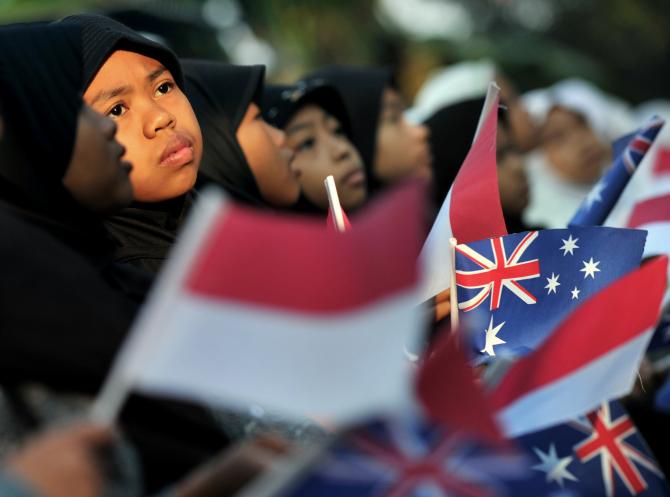
The US Central Intelligence Agency’s human resources section doubtlessly had a busy summer clicking through undergraduate language enrollments. Much the same was under way within Britain’s Joint Intelligence Committee. When the students eventually get to toss their mortarboards in the air, the CIA and JIC will have already been calculating: will there be enough speakers of Arabic, Chinese and Russian to fill upcoming vacancies for spooks and diplomats?
The rule of tongue is that one in five new students will graduate with high-level fluency. As around 35,000 students in the United States have chosen Arabic this year, the catchment area by decade’s end should be about 7,000. Not a lot when few will fancy a career spooling through days and nights of grainy closed-circuit television tapes just to spot the second when the missile codes change hands.
But that Arabic talent pool is an inland sea compared to the Indonesian puddle. Currently, only 300 American students have an interest in the language used in the world’s fourth-most populous nation, plus the sister tongue of nearby Malaysia and its 30 million people. US foreign affairs strategists recognize that the biggest economy and largest nation in Southeast Asia is of critical global importance. Indonesia straddles the Equator and more than 60 percent of the world’s shipping passes through its waters. The republic’s geopolitical position and influence is particularly important in helping monitor Chinese aggression in the South China Sea.
All that seems reason enough to know terabytes more about the sprawling archipelago, understand its history, culture and identity, its nationalistic strengths and military weaknesses. However, the responsibility of amassing the expertise to competently read regional moods, analyze trends and provide sound advice to policy makers has been outsourced to the United States’ regional security partners – Australia and New Zealand.
This might not be such a smart idea. Today, New Zealand universities neither teach Indonesian cultural studies nor Bahasa Indonesia. That leaves Australia, which is much closer, to be the sentinel. Curiously, the watchman has lost interest and even started to slumber. A sharp prod is needed to wake Australia up.







 resized.png)
